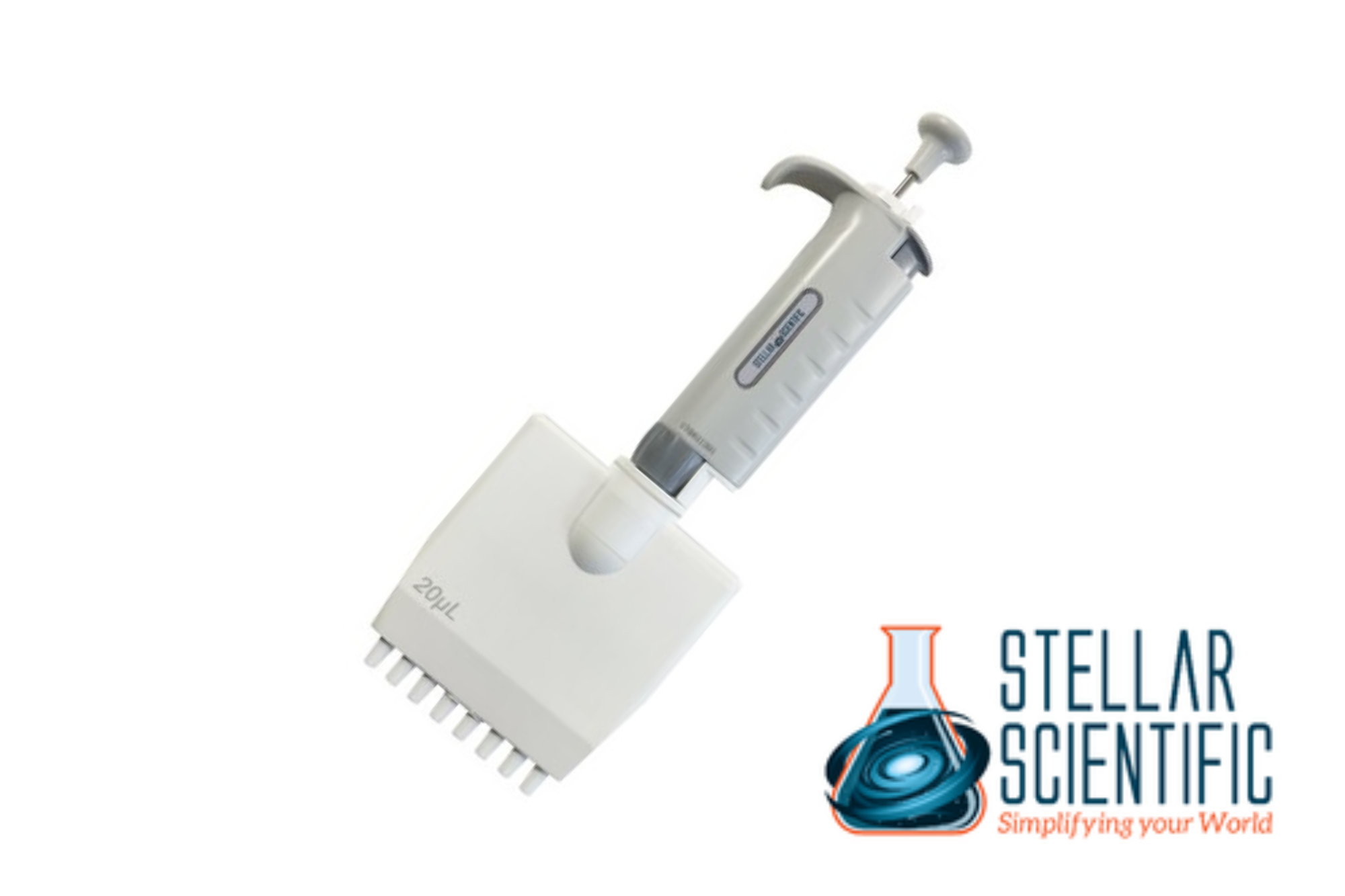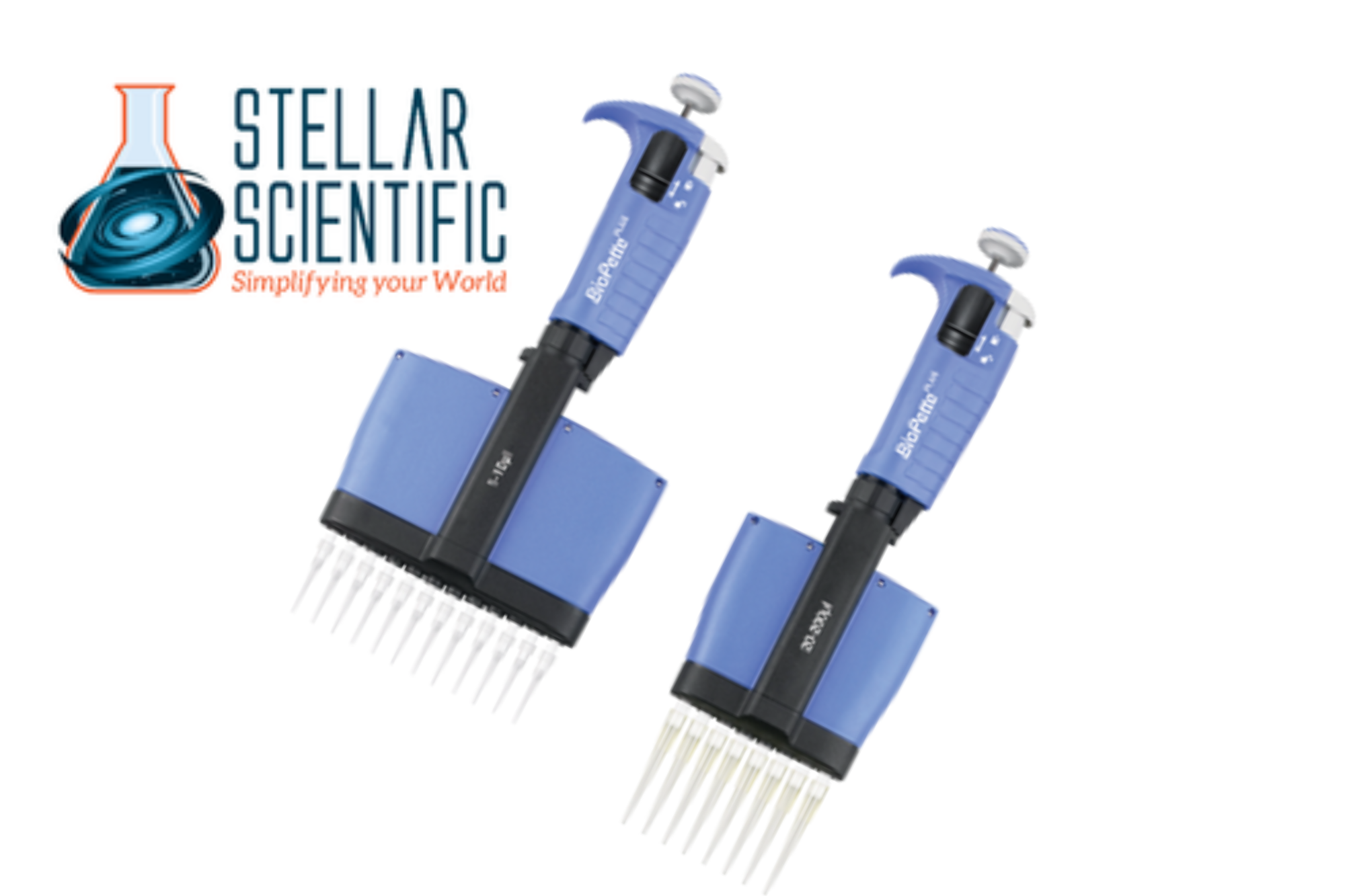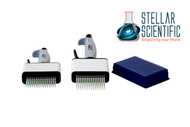Get Fast, Easy Pipetting You Can Count On
23rd May 2025
In laboratories around the world, pipetting is one of the most frequently performed tasks. Whether you're transferring microliters of DNA solution or filling multi-well plates with reagents, precision pipetting is essential to generating reliable, reproducible results. But achieving accuracy isn’t just about technique; it depends heavily on the quality of your pipette and the ergonomics of its design.
Fast, easy, and dependable pipetting can drastically improve workflow efficiency and minimize the risk of errors. This blog will dive into what makes a lab multichannel pipette truly reliable, how to choose the right one for your application, and why investing in the right pipetting tools leads to better outcomes across the board.

Why Reliable Pipetting Is Critical
At its core, pipetting is about volume transfer. But even a tiny deviation in transferred volume, especially in molecular biology, cell culture, or analytical chemistry, can compromise results. Inaccurate or inconsistent pipetting can skew data, cause failed assays, and lead to wasted reagents and time.
Moreover, in high-throughput labs or repetitive workflows, inefficient pipetting tools can lead to hand fatigue and repetitive strain injuries. That's why reliability in pipetting doesn’t just mean precise volumes, it means dependable performance, user comfort, and streamlined operation.
Key Features of a Reliable Pipette
Not all pipettes are created equal. The best pipetting systems are engineered for both performance and user experience. Here are the top features to look for in a quality pipette:
1. Precision and Accuracy
The fundamental requirement of any pipette is that it dispenses the correct volume every time. High-quality multichannel pipettes are calibrated to stringent standards, offering consistent performance across a wide range of volumes. Manufacturers typically provide performance specifications, including accuracy and precision tolerances, which should be closely examined before purchasing.
2. Ergonomic Design
Repetitive pipetting can lead to strain, especially in high-volume labs. A well-designed pipette reduces the amount of force required to aspirate and dispense liquids, offers a balanced grip, and features intuitive controls. Ergonomics plays a critical role in maintaining lab productivity and protecting the health of researchers.
3. Volume Range and Adjustability
Pipettes come in fixed-volume and adjustable-volume models. For labs requiring flexibility, adjustable-volume pipettes allow users to select specific volumes within a defined range. For example, a single-channel micropipette might offer a range of 2–20 µL or 100–1,000 µL. Multichannel pipettes are ideal for working with 96-well or 384-well plates.
4. Tip Compatibility
Not all pipette tips fit all pipettes. A well-designed pipette provides a universal fit or is matched with its manufacturer’s tips to create an airtight seal. This is essential to prevent sample loss, cross-contamination, or imprecise aspiration. The tip ejector should function smoothly without requiring excessive force.
5. Autoclavability and Easy Maintenance
Sterility is key in microbiology and molecular biology labs. Pipettes that can be autoclaved or easily disassembled for cleaning offer an advantage in contamination-sensitive environments. Routine maintenance also ensures long-term reliability.
Types of Pipettes to Consider
Different applications call for different pipetting tools. Below are the most commonly used types of pipettes and their ideal applications.
Single-Channel Pipettes
These are standard in most labs and are used for individual sample transfers. They are ideal for applications requiring precision in smaller volumes, such as qPCR or enzyme assays.
Multichannel Pipettes
Multichannel pipettes available in 8-channel and 12-channel formats are designed for transferring fluids across multi-well plates. They significantly speed up processes like ELISA, plate-based PCR, and cell-based assays.
Electronic Pipettes
Electronic pipettes offer enhanced precision and reduced hand strain. Features often include digital volume setting, automatic aspiration and dispensing, and programmable protocols. These are ideal for labs that perform repetitive tasks or need high-throughput consistency.
Repeat Dispensers
These pipettes can dispense the same volume multiple times from a single aspiration. They’re well-suited for aliquoting reagents or buffers into multiple tubes or wells quickly and consistently.

Practical Tips for Optimal Pipetting
Even the best multichannel pipette won’t perform optimally without proper usage. Here are a few best practices to ensure consistent and accurate pipetting:
- Pre-wet the tip before aspirating to condition the inside surface and improve accuracy.
- Hold the pipette vertically when aspirating, and at a consistent angle when dispensing.
- Use the correct pipette tip for your pipette and the liquid you are handling.
- Work at room temperature when possible, as temperature differences between the pipette, sample, and air can affect accuracy.
- Use smooth and consistent pipetting motions to avoid introducing bubbles or splashing.
- Regularly calibrate and maintain your pipette to keep it operating within its specified tolerances.
The Value of Investing in Quality Pipettes
While budget pipettes may seem attractive in the short term, they often fall short in durability, consistency, and comfort. In contrast, high-quality pipettes are designed with user-centric engineering, precision control, and rigorous testing standards. They help prevent costly experimental errors and increase reproducibility across your workflows.
Additionally, the reduced strain and fatigue offered by ergonomic pipettes contribute to healthier working conditions and greater productivity. Over time, the cost of a reliable pipette pays for itself in saved time, better results, and a lower risk of injury.
Choosing the Right Supplier
Working with a reliable supplier ensures you get access to pipettes that meet high standards of performance and durability. A knowledgeable supplier can also help guide you through the selection process based on your application needs, offering insights into tip compatibility, calibration services, and more.
Product support, warranty coverage, and technical assistance also play an important role when selecting a supplier. Labs benefit from a partner that understands both the science and the operational challenges behind every pipetting task.
About Stellar Scientific
Stellar Scientific provides laboratories with high-performance tools that help researchers work smarter and more efficiently. We offer a wide range of manual and electronic pipettes designed for precision, comfort, and long-term reliability. Whether you're looking for single-channel, multichannel, or specialty pipettes, our curated selection is chosen to meet the exacting standards of modern laboratories. In addition to pipettes, we supply an extensive range of lab essentials from tips and tubes to instrumentation and safety products.

